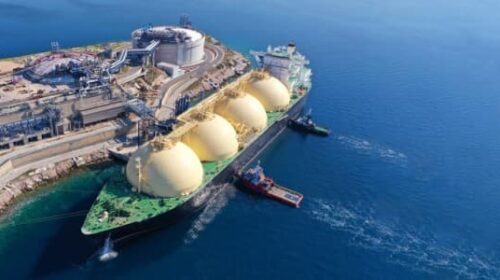But rather than simply replacing one form of gas with another -the shift to imported LNG- undermines the country’s energy security and financial stability,” Institute of Energy Economics & Financial Analysis (IEEFA)’s latest report on Pakistan finds.
IEEFA estimates that Pakistan’s LNG imports could rise to more than $32 billion by FY2030, up from nearly $2.6 billion in FY2021, according to report co-authors and energy finance analysts Haneea Isaad and Samuel Reynolds.
“LNG sourced from global markets has become 5 to 10 times more expensive than domestically produced gas in Pakistan,” says Isaad.
LNG has also been unreliable. LNG suppliers under long-term contracts with Pakistan have defaulted on at least 11 cargoes since January 2021, contributing to fuel and power shortages. Extreme LNG price volatility continues to stymie energy sector planning and exposes the government to massive subsidy burdens.
“Pakistan’s vulnerability to commodity market shocks has only been increasing in the wake of the Ukraine crisis,” says Reynolds.
“Coupled with the global economic recovery from the COVID-19 pandemic, price-sensitive countries such as Pakistan may be unable to compete with wealthier buyers in Europe and Northeast Asia.”
In this report, the authors examined key risks for LNG imports and provide recommendations to mitigate the financially unsustainable growth of LNG import demand in Pakistan.
Pakistan imported 7.4 million tonnes of LNG in 2020, and the government expects LNG demand to grow rapidly over the next decade. There are currently at least four major LNG import terminal projects at various stages of development.
However, the high cost of LNG has shed new light on many of the pre-existing issues with the country’s gas system. These problems include final tariffs that are not reflective of gas costs, inefficient cross-subsidization of gas tariffs, and high volumes of unaccounted for gas (UFG) that are lost in transportation through the network.
“As more LNG is injected to this faulty network, financial issues in Pakistan’s gas sector are likely to worsen significantly,” says Reynolds. “Circular debt, chronic cashflow shortages that have historically plagued Pakistan’s power sector, is now rampant in the gas sector.”
Greater reliance on imported LNG would only reinforce credit risks for investors in the country’s LNG-to-power value chain. Planned pipeline projects and terminals may also take time to materialise as geopolitical conflicts and unviable economics exacerbate stranded asset risks for LNG infrastructure.
In January, fuel shortages forced textile mills in Punjab to close for over two weeks. As a result, exports worth $250 million —or 20 percent of the entire sector’s annual revenue— were lost.
“In Pakistan’s textile sector, power generation costs can amount to roughly 30-40 percent of the production costs,” says Isaad.
“Since the textile industry depends on gas-based power generation, rising LNG prices can grossly reduce profit margins.”
The fertiliser sector also has an entrenched dependence on natural gas as a fuel and feedstock, but the sector pays among the lowest gas prices despite high costs. Fertiliser industry accounts for 16 percent of national gas consumption, but only 3 percent of revenues of state-owned gas transmission companies.
Instead of rapidly ramping up LNG imports, Pakistan’s near-term focus can be on using existing LNG supply more efficiently by changing regulatory incentives, rationalising tariff structures, and implementing energy efficiency programmes, among other measures.
“The focus should be on the demand side of the equation, and less so on expanding supply,” says Reynolds, adding, “The promotion of energy efficiency equipment and more cost-reflective tariff structures can incentivize more efficient use of gas to reduce import needs.”
According to Isaad, more coherent strategies for LNG procurement and tenders, along with maximising the utilisation of existing LNG terminals can also help improve energy security without major new infrastructure additions.







